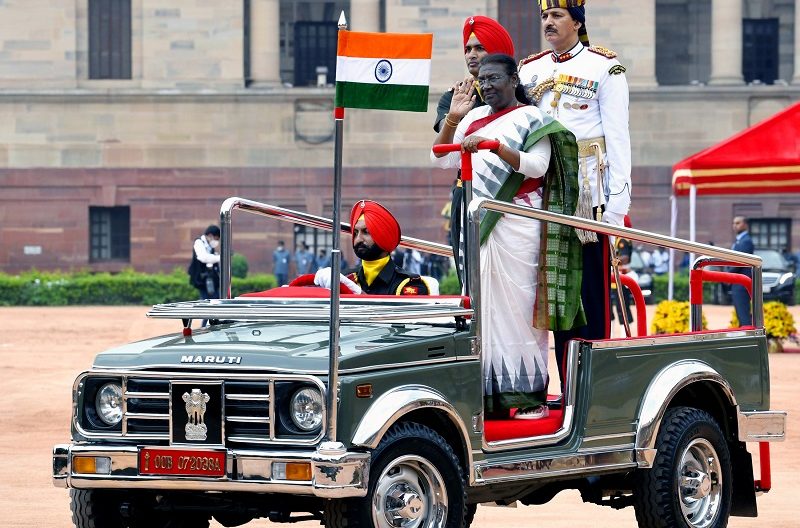- As you are aware, the ongoing monsoon session of the Parliament is witnessing nothing but disruptions curtailing every chance of conducting nation-building business over the last couple of weeks. With both the treasury benches and the opposition not prepared to yield an inch of ground, it appears the session is headed for a complete washout with no meaningful discussions, debate, or exchange of viewpoints expected to take place. Of course, the Centre is equally determined to not allow discussions on what the opposition considers pertinent vis-à-vis GST on commodities, spiraling food prices, Agnipath scheme, Gujarat hooch tragedy, and general inflationary trends. Interesting to see who blinks first in the ongoing tussle.

PC: India TV News Desk
- To add further fuel to the raging fire, the two main political protagonists, the Bharatiya Janata Party, and the Grand Old Party are indulging in mudslinging over an issue that ought to have been handled more maturely and wisely. Is it too much to expect? You bet. The least expected of our elected representatives is to exhibit maturity and a sensitive understanding of the situation. The parliamentary kerfuffle over Congress leader Adhir Ranjan Chowdhury’s reference to President Droupadi Murmu as ‘Rashtrapatni’ – a very poor choice of a word – is an opportunity to understand how problematic the intersection of gender, language, and social power can be. A word that can cause such obdurate disturbances is amply visible to common citizens.
- Back to the wall BJP smelt an opportunity when the seemingly abominable word was uttered and was instantly seized by the ruling dispensation what with women MPs going hammer and tongs against the Congress president demanding an apology for the affront. The insidious connotation associated with the word Rashtrapatni cannot be disputed as the country’s highest constitutional occupant is not only a respected woman but also represent the most backward tribal community having come through the ranks after enduring grueling experiences along the way. The moot point to ponder over here is why pati is widely considered a respectable word that conveys authority, and why patni conveys subjugation on the other hand.

PC: Ajay Dua
- Did someone say misogyny, gender bias, and patriarchal mindset at work? Not necessarily, if I may say. At least with regards to the instant matter. More broadly, how does one remove gendered associations from titles? Mind you, until recently, this wouldn’t have been a question, because power was wielded mainly by men of rank and authority. Remember, it felt natural to say founding fathers or chairman. Moreover, efforts are underfoot to consciously un-gender language as the same shapes thoughts. Note that English has tried hard to shed ingrained biases with unisex words like a flight attendant, actor, police officer, batter, and so on which are now in common usage.
- As such, why not push ahead with creating words that challenge the masculine, especially for titles? Thus, while Rashtrapati is the right word to address a woman president in Hindi, there’s no reason we shouldn’t think about finding a gender-neutral word to describe the country’s highest constitutional post. In the meanwhile, will our policymakers strike a workable solution to carry out the long-stalled nation-building business in right earnest? Hopefully so.






